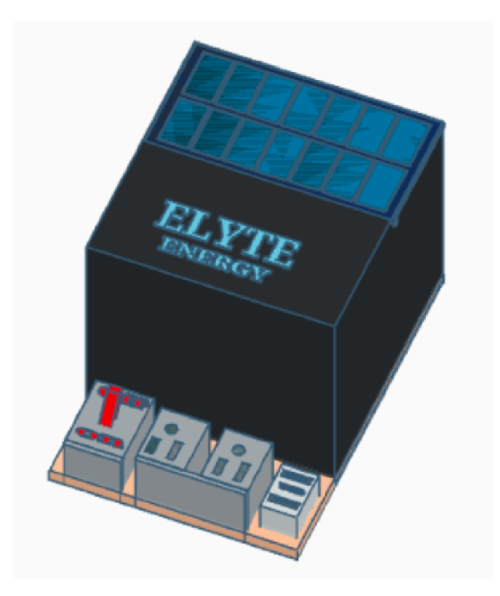It was November 2020. Joe Biden had just won the election, and Dr. Jalaal Hayes, like many Americans, saw promise in the future.
“The election of President Biden put hydrogen on the table,” said Hayes, aka Dr. JAH. “That’s when I said it’s time to really hit full speed.”
The same month, Elyte Energy was born. The green energy startup is based on the hydrogen storage technology Hayes patented in 2017. The founder and his small team were fresh out of the National Science Foundation’s I-Corps program for scientific research at the University of Delaware.
Hayes, a graduate of Lincoln University and Delaware State University, where he received his Ph.D. in applied chemistry in 2015 at the age of 22, started his path in green technology in 2011. That’s when, as a student, he worked a three-month internship with NASA and the Maryland Department of Environment.
“I knew hydrogen energy was going to be the wave of the future,” he told Technical.ly. “I just didn’t know when.”
Why hydrogen?
“The beautiful thing about hydrogen is that it’s a clean energy carrier, so it’s like gas that you put in your car. The only difference is this gas is an actual gas, and we know it can convert into power,” he said. “So it’s an energy carrier, meaning it’s a chemical that can turn into electricity. And it’s 100% clean. The byproduct is water vapor.”
Another Delaware-based green energy startup, Versogen, works in electrolysis, splitting the hydrogen and oxygen molecules of water to create pure hydrogen. Elyte Energy works in the storage of hydrogen to be used in a power bank that can recharge itself and power just about anything. The first small prototype can charge an iPhone. Now, the team is working on a briefcase-sized prototype of the power bank they eventually plan to market — one that can be used to “flip” an RV, or turn a conventional gas-guzzling RV into one suited for green travel and recreation.

The decision to market Elyte Energy’s hydrogen power banks to the growing RV community happened through mentoring sessions during the startup’s time in the Delaware Innovation Space’s Science Inc. Accelerator.
“One of my mentors said the market should be something you’re really passionate about, and that’s when I realized: I like camping, it’s a semi-billion dollar industry, and I could help out Delaware because Delaware is an RV town,” Hayes said.
The RV market was one that did exceptionally well in 2020 during the pandemic, when people used them to escape crowded cities and take socially distanced trips when air and rail travel was restricted. With travel restrictions loosened, one might think that the 2020 RV trend would dissipate, but it only seems to be growing, with a nearly 20% increase in RV units shipped in 2021 predicted. Factors include a continued preference for socially distanced travel, social media-influenced popularity and the increase in remote workers who can work anywhere.
And, for some, part of the appeal of the RV is its versatility and the ability to customize and flip them to make them more eco-friendly. Elyte Energy’s hydrogen power banks, which work with solar power during the day, are a potential game changer for environmentally conscious RV owners. In addition to zero emissions, stopping for gas — or even a charge — will be eliminated.
“The hydrogen replenishes, no energy is wasted,” Hayes said. “The water vapor byproduct is fueled back into the electrolysis. The only thing you might have to replace is the water tank when it degrades over time.”
Though the company is starting with DIY RV flippers, Hayes says that they will be in talks with RV manufacturers about selling units that have the technology built in.
After Elyte Energy’s participation in the Science, Inc. accelerator, Hayes plans to establish a place at Delaware Innovation Space.
“Science Inc. really helped me out with the mentorship and helped me validate the idea and make it plausible,” he said. “I had the technology background, but I didn’t understand the business of it. Plus connecting with people such as [founders of] Carbon Reform, Lectrolyst [was helpful] — people who are experts in the field, learning how we can improve as business.”







